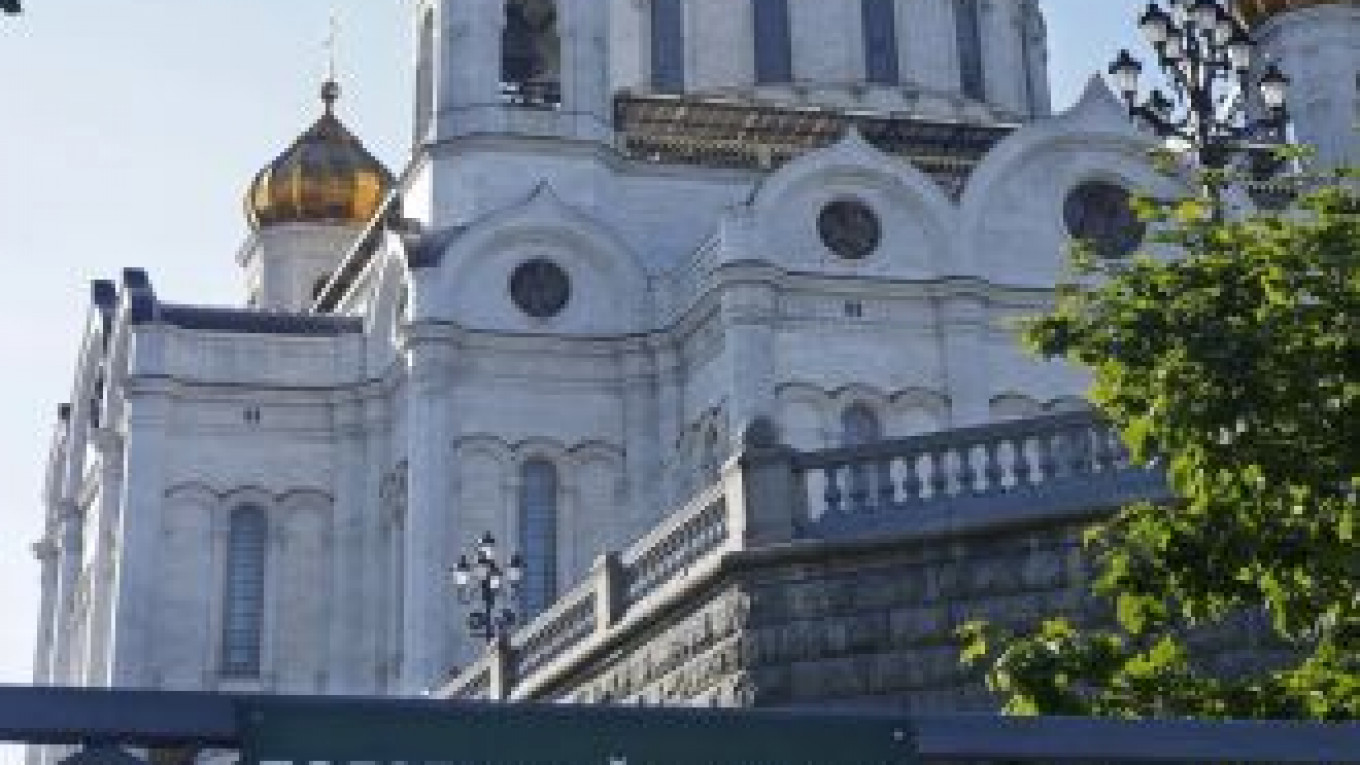Almost half of drivers in Moscow are willing to give up their wheels in favor of public transportation, according to a study that the Romir research company published Thursday.
However, ecologists shouldn't hurry to celebrate the news. Drivers want several conditions to be met before they get in step with the public-transportation commuters.
The top conditions that Moscow drivers demanded were increased frequency of transportation, better information services about schedules and routes, and comfortable transfers from one type of vehicle to another.
Drivers of luxury cars and drivers with medium to high salaries were least willing to switch to public transportation. But for some drivers, this choice may soon cease to exist.
The head of the city's transportation department, Maxim Liksutov, announced in April that certain areas inside the Boulevard Ring will become paid-parking zones after Jan. 1, 2013.
A pilot project on paid parking will be launched in October at three central locations.
"What is happening now with parking in … the center of Moscow can't be described by any word other than uncivilized chaos," said Romir president Andrei Milekhin.
While Milekhin said he is looking forward to changes with the parking situation, the city's plans to charge for parking has left some drivers wondering whether they can continue to use their cars.
Survey respondents who do not drive regularly said they would not pay for parking, and 71 percent of them were willing to give up driving to the city center entirely, according to the study.
Overall, 38 percent of Moscow drivers said they are ready to use paid parking spots. The average price they are willing to pay is 407 rubles per day.
Surprisingly, while over half of middle-class drivers accepted paid parking, luxury-vehicle owners showed a much more negative attitude toward the plan.
More than half of them — more than any other class of drivers — said they will look for free parking spots in back alleys or other places to avoid paying.
About 2,000 Moscow residents participated in the survey, including 800 private automobile owners, 200 professional drivers and 1,000 randomly chosen adults.
The Society for Consumer Rights Protection said Tuesday that it had asked the Moscow Prosecutor's Office to examine the legality of the commercial activities at Christ the Savior Cathedral, including a parking lot, tire servicing, retail sales, a car wash and corporate events.
The move comes amid a series of scandals surrounding the Russian Orthodox Church, with some observers accusing it of corruption and strong ties with authorities. The cathedral is owned by City Hall and leased to the church.
Religious activities take place on only 7 percent of the church's territory, the society said on its website. The rest is used for purposes that are not authorized by law, the group said.
The society also asked prosecutors to check whether the church's exemption from the corporate tax is legitimate, and it suggested an examination of the allocation of government funds for the church. City Hall appropriated 140 million rubles ($4.3 million) for the cathedral in 2006 and 372 million rubles in 2012, the consumer rights group said.
On July 10, Moscow's Khamovniki Court rejected a lawsuit filed by the society against Christ the Savior Cathedral.
The society argued that commercial activities at the church violate consumer protection law. The court interpreted payments received by the church as charity donations, not as sales revenue.?
A Message from The Moscow Times:
Dear readers,
We are facing unprecedented challenges. Russia's Prosecutor General's Office has designated The Moscow Times as an "undesirable" organization, criminalizing our work and putting our staff at risk of prosecution. This follows our earlier unjust labeling as a "foreign agent."
These actions are direct attempts to silence independent journalism in Russia. The authorities claim our work "discredits the decisions of the Russian leadership." We see things differently: we strive to provide accurate, unbiased reporting on Russia.
We, the journalists of The Moscow Times, refuse to be silenced. But to continue our work, we need your help.
Your support, no matter how small, makes a world of difference. If you can, please support us monthly starting from just $2. It's quick to set up, and every contribution makes a significant impact.
By supporting The Moscow Times, you're defending open, independent journalism in the face of repression. Thank you for standing with us.
Remind me later.


